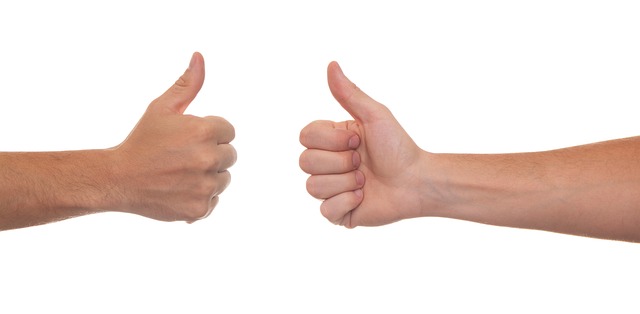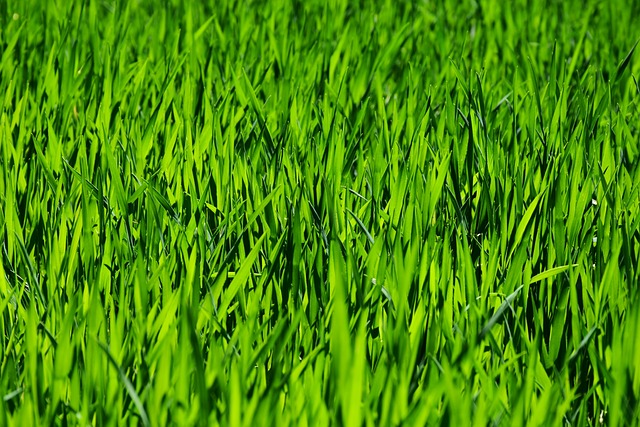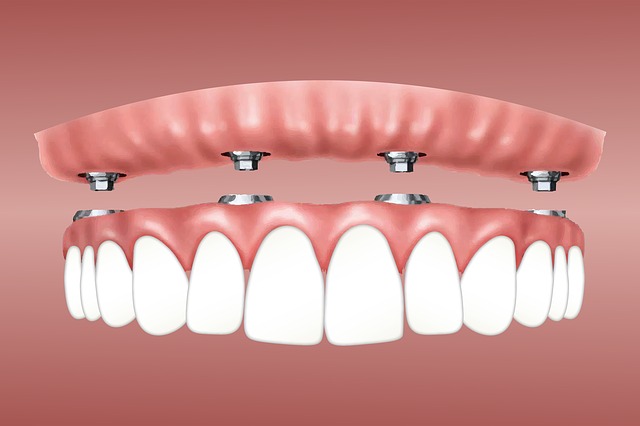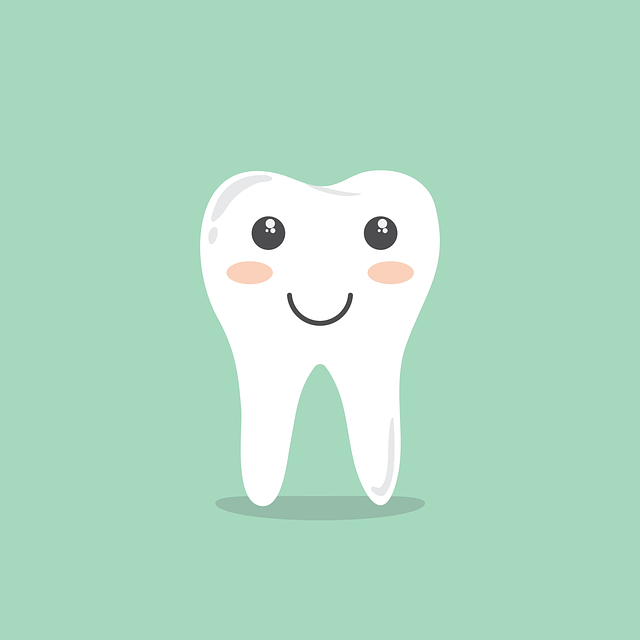Gums Bleeding with Retainers: What to Do Next
Are you experiencing the unsettling occurrence of gums bleeding while wearing retainers? Rest assured, you are not alone. This common issue can be a cause for concern, but fear not – we are here to provide you with expert advice on what to do next. In this article, we will delve into the potential reasons behind this discomfort, as well as offer practical solutions to alleviate the bleeding. So, let’s tackle this issue head-on and find the best course of action for a healthier, more comfortable smile.
1. Understanding the Causes: Why Does Your Gums Bleed with Retainers?
There are several reasons why your gums may bleed when wearing retainers. Understanding these causes can help you address the issue effectively. Here are some common factors that contribute to bleeding gums with retainers:
Poor oral hygiene: Insufficient brushing and flossing can lead to plaque buildup, which irritates the gums and causes them to bleed. It is crucial to maintain good oral hygiene by brushing your teeth thoroughly at least twice a day and flossing daily.
Retainer adjustment: When your retainer is adjusted or tightened, it may put pressure on your gums, leading to bleeding. This is typically a temporary issue that subsides as your gums adjust to the new pressure. However, if the bleeding persists or becomes severe, it is important to consult your orthodontist.
Gingivitis or gum disease: If you already have gingivitis or gum disease before wearing retainers, the pressure exerted by the retainers can exacerbate the condition, causing bleeding gums. Regular dental check-ups and proper oral care can help prevent and manage gum disease.
Sharp edges or ill-fitting retainers: Retainers that have rough or sharp edges can irritate the gums, leading to bleeding. Similarly, if your retainers do not fit properly, they can rub against your gums and cause discomfort. In such cases, it is essential to visit your orthodontist to have your retainers adjusted or replaced.

2. Common Remedies: How to Stop Gums from Bleeding with Retainers
Bleeding gums can be a common issue when wearing retainers, but there are several remedies you can try to stop the bleeding and maintain oral health. Here are some effective ways to address this problem:
- Improve oral hygiene: Brush your teeth at least twice a day, using a soft-bristled toothbrush and a fluoride toothpaste. Ensure that you clean your teeth thoroughly, including around the retainer. Floss daily to remove plaque and food particles that may irritate your gums.
- Use a saltwater rinse: Rinse your mouth with a warm saltwater solution several times a day. Mix half a teaspoon of salt in a glass of warm water and swish it around your mouth for about 30 seconds before spitting it out. This can help reduce gum inflammation and promote healing.
- Avoid hard or sticky foods: Certain foods can aggravate the gums and cause bleeding. Steer clear of hard candies, chewy snacks, and crunchy fruits and vegetables. Opt for softer options to minimize irritation.
- Remove and clean your retainer: Take out your retainer regularly and clean it thoroughly. Brush it gently with a soft toothbrush and mild soap or non-alcoholic mouthwash. Rinse it well before putting it back in your mouth. A clean retainer reduces the risk of bacteria buildup and gum irritation.
- Attend regular dental check-ups: Schedule regular visits to your dentist to monitor your oral health and ensure that your retainer is fitting properly. Your dentist can identify any underlying issues causing the bleeding gums and provide appropriate treatment.
By following these common remedies, you can effectively address bleeding gums while wearing retainers. However, if the bleeding persists or worsens, it is recommended to consult your dentist for further evaluation and guidance.

3. Seeking Professional Help: When to Consult a Dentist about Bleeding Gums with Retainers
When it comes to bleeding gums with retainers, it’s crucial to know when it’s time to seek professional help from a dentist. While some degree of gum irritation and bleeding is normal when you first start wearing retainers, persistent bleeding can be a cause for concern. If you notice that your gums continue to bleed after a few weeks of retainer use, it’s best to consult a dentist to address the issue.
A dentist can thoroughly examine your gums and determine the underlying cause of the bleeding. There are several factors that could contribute to this problem, such as poor oral hygiene, gum disease, or an ill-fitting retainer. During your consultation, the dentist will assess your oral health and provide you with the necessary guidance to address the issue. They may recommend specific oral hygiene practices, suggest adjustments to your retainer, or even perform a professional cleaning to remove any plaque or tartar buildup that could be irritating your gums. Remember, seeking professional help promptly can help prevent further complications and ensure that your gums stay healthy.

4. Maintaining Oral Hygiene: Essential Practices to Prevent Gums from Bleeding with Retainers
Maintaining oral hygiene is crucial for preventing gums from bleeding when wearing retainers. Here are some essential practices that you should incorporate into your daily routine:
- Brush your teeth at least twice a day using a soft-bristled toothbrush. Be gentle and ensure that you clean all surfaces of your teeth, including the areas around your retainer.
- Floss daily to remove any food particles or plaque that may have accumulated between your teeth. Use a gentle back-and-forth motion to clean around the retainer as well.
- Rinse your mouth with an antimicrobial mouthwash to kill bacteria, reduce plaque, and freshen your breath. Look for a mouthwash that is specifically formulated for orthodontic patients.
- Avoid consuming sugary or sticky foods as they can increase the risk of plaque buildup and gum inflammation. Opt for a balanced diet that includes fruits, vegetables, and calcium-rich foods for optimal oral health.
Additionally, it is important to regularly schedule appointments with your orthodontist or dentist to ensure that your retainer fits properly and to address any potential issues. Remember, maintaining good oral hygiene practices while wearing retainers will not only prevent bleeding gums but also contribute to overall oral health.

5. Retainer Care Tips: Ensuring Proper Fit and Reducing Gums Bleeding
Proper care and maintenance of your retainer is crucial to ensure a comfortable fit and minimize the risk of gum bleeding. Here are some essential tips to keep in mind:
- Handle with care: Always handle your retainer with clean hands to prevent the buildup of bacteria or debris.
- Clean it regularly: Use a soft toothbrush and non-abrasive toothpaste to gently clean your retainer. Rinse it thoroughly with cool water after each use.
- Avoid hot water: Never use hot water to clean your retainer, as it can cause it to warp or lose its shape.
- Keep it in the case: When you’re not wearing your retainer, store it in its case to protect it from damage or loss.
Visit your orthodontist: Regular visits to your orthodontist are crucial for retainer care. They will assess the fit, make any necessary adjustments, and ensure your retainer continues to work effectively.
- Watch for signs of wear: Inspect your retainer regularly for signs of wear or damage. If you notice any cracks or breaks, contact your orthodontist for a replacement.
- Avoid bending or adjusting: Never attempt to adjust your retainer yourself, as it may lead to an improper fit or cause damage.
- Keep up with oral hygiene: Brush and floss your teeth regularly to maintain good oral hygiene and prevent any potential gum issues.
- Be consistent with wear: Follow your orthodontist’s instructions regarding when and how long to wear your retainer. Consistency is key to ensure the desired results.
6. Exploring Alternatives: Are There Other Options for Retainers if Gums Continue to Bleed?
When it comes to retainers, it is essential to address any concerns that may arise, such as bleeding gums. If you are experiencing this issue, there are several alternatives worth exploring:
1. Adjusting the Retainer: In some cases, the retainer itself may be the culprit behind the bleeding gums. It could be too tight or have rough edges that irritate the gum tissue. Consider visiting your orthodontist to have the retainer adjusted or replaced with a more comfortable one.
2. Practicing Good Oral Hygiene: Maintaining a proper oral hygiene routine is crucial for overall gum health, especially when wearing a retainer. Make sure to brush your teeth thoroughly twice a day and floss regularly. Additionally, using an antibacterial mouthwash can help reduce bacteria that contribute to gum bleeding.
7. Long-Term Solutions: Preventing Gums from Bleeding with Retainers in the Future
When it comes to preventing gums from bleeding in the future, retainers can be a long-term solution. Retainers are custom-made devices that are designed to keep your teeth in their proper alignment after orthodontic treatment. By wearing retainers as instructed by your orthodontist, you can maintain the alignment of your teeth, which in turn can prevent gum bleeding.
Here are some key benefits of using retainers to prevent gum bleeding:
- Maintain proper tooth alignment: Retainers help to keep your teeth in the correct position, reducing the risk of gum irritation and bleeding.
- Prevent shifting: Wearing retainers consistently can prevent your teeth from shifting, which can put pressure on the gums and lead to bleeding.
- Protect gum health: Retainers provide a barrier between your teeth and gums, helping to protect your gums from irritation and bleeding.
By incorporating retainers into your oral care routine, you can take proactive steps to prevent gum bleeding and maintain a healthy smile. Consult with your orthodontist for guidance on the type of retainer that suits your specific needs and follow their instructions for proper usage.
Frequently Asked Questions
Q: Why are my gums bleeding with retainers?
A: The most common cause of gum bleeding with retainers is inadequate oral hygiene. Plaque buildup and bacteria can irritate the gums, leading to inflammation and bleeding.
Q: How can I prevent gum bleeding while wearing retainers?
A: Maintaining excellent oral hygiene is crucial. Brush your teeth thoroughly at least twice a day, focusing on all surfaces, including around the retainer. Additionally, floss daily and use an antibacterial mouthwash to reduce bacteria in the mouth.
Q: Is it normal for gums to bleed when first wearing retainers?
A: Mild gum bleeding can occur when you first start wearing retainers. This is often due to the tissues adjusting to the presence of the retainer. However, if the bleeding persists or worsens, it is essential to seek professional advice.
Q: Can ill-fitting retainers cause gum bleeding?
A: Yes, ill-fitting retainers can cause gum bleeding. Retainers that are too tight or have rough edges can irritate the gums and lead to bleeding. If you suspect your retainers are causing discomfort or bleeding, consult with your orthodontist to ensure a proper fit.
Q: What should I do if my gums bleed with retainers?
A: If you experience gum bleeding with retainers, it is important not to ignore it. Start by thoroughly cleaning your teeth and the retainer to remove any plaque or food particles. If the bleeding persists, schedule an appointment with your dentist or orthodontist for a thorough examination.
Q: Can I still wear my retainers if my gums are bleeding?
A: It is generally recommended to continue wearing your retainers unless advised otherwise by your orthodontist. However, if the bleeding is excessive or accompanied by severe pain, it is best to consult a professional to determine the appropriate course of action.
Q: What treatments are available for gum bleeding with retainers?
A: Treatment options depend on the underlying cause of the gum bleeding. Your dentist or orthodontist may recommend improving oral hygiene practices, adjusting the retainer fit, or prescribing medicated mouthwash or gels to reduce inflammation and promote healing.
Q: How long does it take for gum bleeding to stop with retainers?
A: The duration for gum bleeding to subside can vary depending on individual circumstances. With improved oral hygiene and appropriate treatment, gum bleeding should gradually decrease within a few days to a couple of weeks. If the bleeding persists or worsens, professional intervention is necessary.
Q: Can gum bleeding with retainers lead to more serious oral health issues?
A: If left untreated, gum bleeding with retainers can potentially lead to more serious oral health problems. It may progress to gum disease or periodontitis, causing gum recession, tooth decay, and even tooth loss. Seeking timely dental care is crucial to prevent further complications.
Q: Are there any additional tips for maintaining healthy gums with retainers?
A: Yes! In addition to proper oral hygiene, consider incorporating a balanced diet rich in vitamins and minerals to support gum health. Avoid foods and habits that can further irritate the gums, such as smoking or consuming excessive sugary or acidic substances. Regular dental check-ups are also essential for monitoring your oral health.
In Conclusion
In conclusion, if you find yourself experiencing gum bleeding with retainers, it is crucial to take immediate action to safeguard your oral health. Remember these key takeaways:
1. Don’t ignore the problem: Gum bleeding should never be ignored, as it can indicate underlying dental issues that require attention.
2. Practice good oral hygiene: Ensure you maintain a consistent oral hygiene routine, including brushing and flossing regularly, to prevent plaque buildup and gum inflammation.
3. Consult your orthodontist: If the bleeding persists or worsens, it is wise to consult your orthodontist. They can evaluate your situation and provide appropriate guidance.
4. Consider alternative options: In some cases, your orthodontist may suggest alternative retainers or adjustments to alleviate the gum bleeding.
5. Be patient: It’s important to remember that gum bleeding with retainers is a common issue and can be resolved with proper care and attention. Patience is key in finding the best solution for your specific case.
By taking these steps, you can effectively address gum bleeding with retainers, ensuring your oral health remains in optimal condition. Remember, your orthodontist is your ally in this journey, so don’t hesitate to seek their professional advice.






